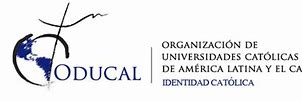Model Building in Economics / Laurence A. Boland
Editor: Estados Unidos de América : Cambridge University Press , 2015Edición: First editionDescripción: XvolúmenesII, 276 páginas ; 23 cmTipo de contenido:- texto
- no mediado
- volumen
- 9781107673472
- 330 B6375 2015
| Tipo de ítem | Biblioteca actual | Colección | Signatura | Copia número | Estado | Fecha de vencimiento | Código de barras | Reserva de ítems |
|---|---|---|---|---|---|---|---|---|
 Libro
Libro
|
Sede Santo Domingo Sala general | Col General | 330 B6375 2015 (Navegar estantería(Abre debajo)) | Ej.1 | Disponible | SDO022879 | ||
 Libro
Libro
|
Sede Santo Domingo Sala general | Col General | 330 B6375 2015 (Navegar estantería(Abre debajo)) | Ej.2 | Disponible | SDO022880 | ||
 Libro
Libro
|
Sede Santo Domingo Sala general | Col General | 330 B6375 2015 (Navegar estantería(Abre debajo)) | Ej.3 | Disponible | SDO022881 |
Factura Educativa
Description Contents Resources Courses About the Authors Concern about the role and the limits of modeling has heightened after repeated questions were raised regarding the dependability and suitability of the models that were used in the run-up to the 2008 financial crash. In this book, Lawrence Boland provides an overview of the practices of and the problems faced by model builders to explain the nature of models, the modeling process, and the possibility for and nature of their testing. In a reflective manner, the author raises serious questions about the assumptions and judgments that model builders make in constructing models. In making his case, he examines the traditional microeconomics-macroeconomics separation with regard to how theoretical models are built and used and how they interact, paying particular attention to the use of equilibrium concepts in macroeconomic models and game theory and to the challenges involved in building empirical models, testing models, and using models to test theoretical explanations. -1. Microeconomic vs macroeconomic in theoretical model building 2. On the limitations of equilibrium models in general 3. On building theoretical models using game theory 4. On the purpose and limitations of game-theoretic models 5. Microeconomic vs macroeconomic in empirical model building 6. On building macroeconometric models 7. Modeling and forecasting 8. On the role and limitations of experimental and behavioral economics 9. The logical adequacy of convincing tests of models using empirical data 10. The statistical adequacy of convincing tests of models using empirical data 11. Model building from a philosophy of science perspective 12. Choosing model-building methods.
Administración de Empresas
NR










No hay comentarios en este titulo.